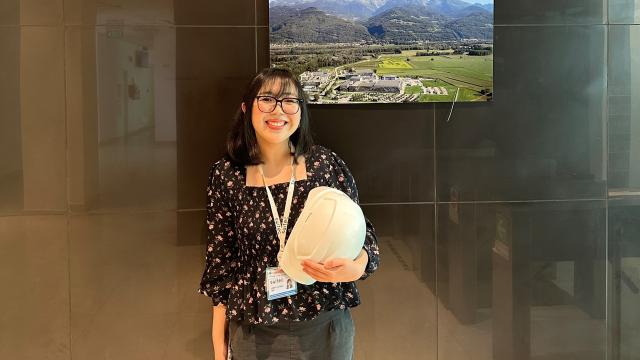 A cure was needed fast. Victims were quickly succumbing to fever and autoimmune disease-related symptoms like weakness and paralysis. Zika, a mosquito-borne virus, was wreaking havoc around the world. By the time the World Health Organization declared it as a global public health emergency in February 2016, the virus had spread to more than 33 countries and territories.
A cure was needed fast. Victims were quickly succumbing to fever and autoimmune disease-related symptoms like weakness and paralysis. Zika, a mosquito-borne virus, was wreaking havoc around the world. By the time the World Health Organization declared it as a global public health emergency in February 2016, the virus had spread to more than 33 countries and territories.
Over at a biotechnology laboratory in Tuas, Elango Meenakshi Yazhini sat huddled over a microscope, her eyes unflinching. She knew her task could have immense worldwide implications.
With meticulous precision, she examined a vial containing the Zika virus antibody — a concoction designed and produced by her team. She afforded herself a tiny smile. Having entered the research phase, the antibody would go on to pass the clinical trial stages within a year and cure numerous lives affected by the virus.
This is but one of the many life-changing moments Yazhini got to experience during her four-month Industry Induction (II) programme as a pharmaceutical engineering student at the Singapore Institute of Technology (SIT).
“Being on the front-line as part of a team that was helping to stop a global epidemic was something I never imagined I’d do,” said the 21-year-old, who’s now a process engineer at biopharmaceutical giant, Pfizer Singapore, “When you realise that your work can help to save lives, it makes it that much more worthwhile.”
 A rich multi-disciplinary learning experience
A rich multi-disciplinary learning experience
Beyond the lab, she was able to dabble in other areas of the sector. This is due to the multi-disciplinary nature of the Pharmaceutical Engineering programme that incorporates lessons in engineering, life sciences and chemistry.
In her second year, she had the chance to visit a leading pharmaceutical ingredient manufacturing plant located in Johor Bahru, Malaysia. Apart from understanding the technical features of the engineering plant, speaking with the supervisors on-site allowed her to understand the operations from a business perspective.
This unique balance between classroom and real-world experiences ensure that graduates are both theoretically-grounded and practice-oriented for the knowledge-intensive pharmaceutical industry and its related sectors.
On another occasion, she got the chance to see one of her ideas come to life during her Integrated Work Study Programme (IWSP) at a biotechnology company.
“Being able to conceptualise my own project was truly eye-opening because I got to learn how clinical processes work in a real-world setting,” she said.
Unlike most internships, which last for two to three months, the eight-month commitment allows students to participate in longer term projects and take on greater responsibility, providing more breadth and scope to develop skills and improve their industry knowledge.
 But life at SIT is not all work. For Yazhini, it was also a way for her to impact the lives of the underprivileged.
But life at SIT is not all work. For Yazhini, it was also a way for her to impact the lives of the underprivileged.
As the head of finance for Project Laos, a service learning initiative, she was able to conduct and spearhead outreach programmes to rural folks within Laos. It was this good mix of academic and character-building activities in SIT that has helped her to grow holistically, both as a professional and as an individual.
“Being able to transform people’s lives puts things in perspective. It was good that we had the space and freedom to focus on things beyond our studies,” she said.
![[FA] SIT One SITizen Alumni Initiative_Web banner_1244px x 688px.jpg](/sites/default/files/2024-12/%5BFA%5D%20%20SIT%20One%20SITizen%20Alumni%20Initiative_Web%20banner_1244px%20x%20688px.jpg)


